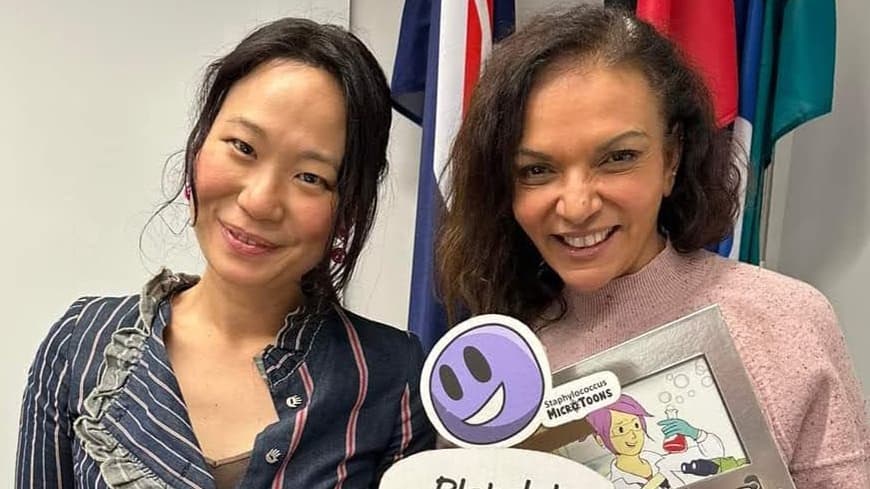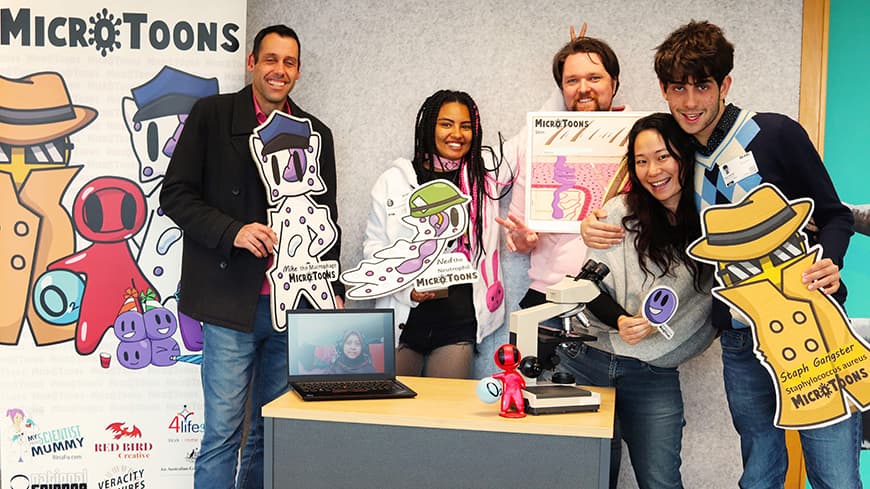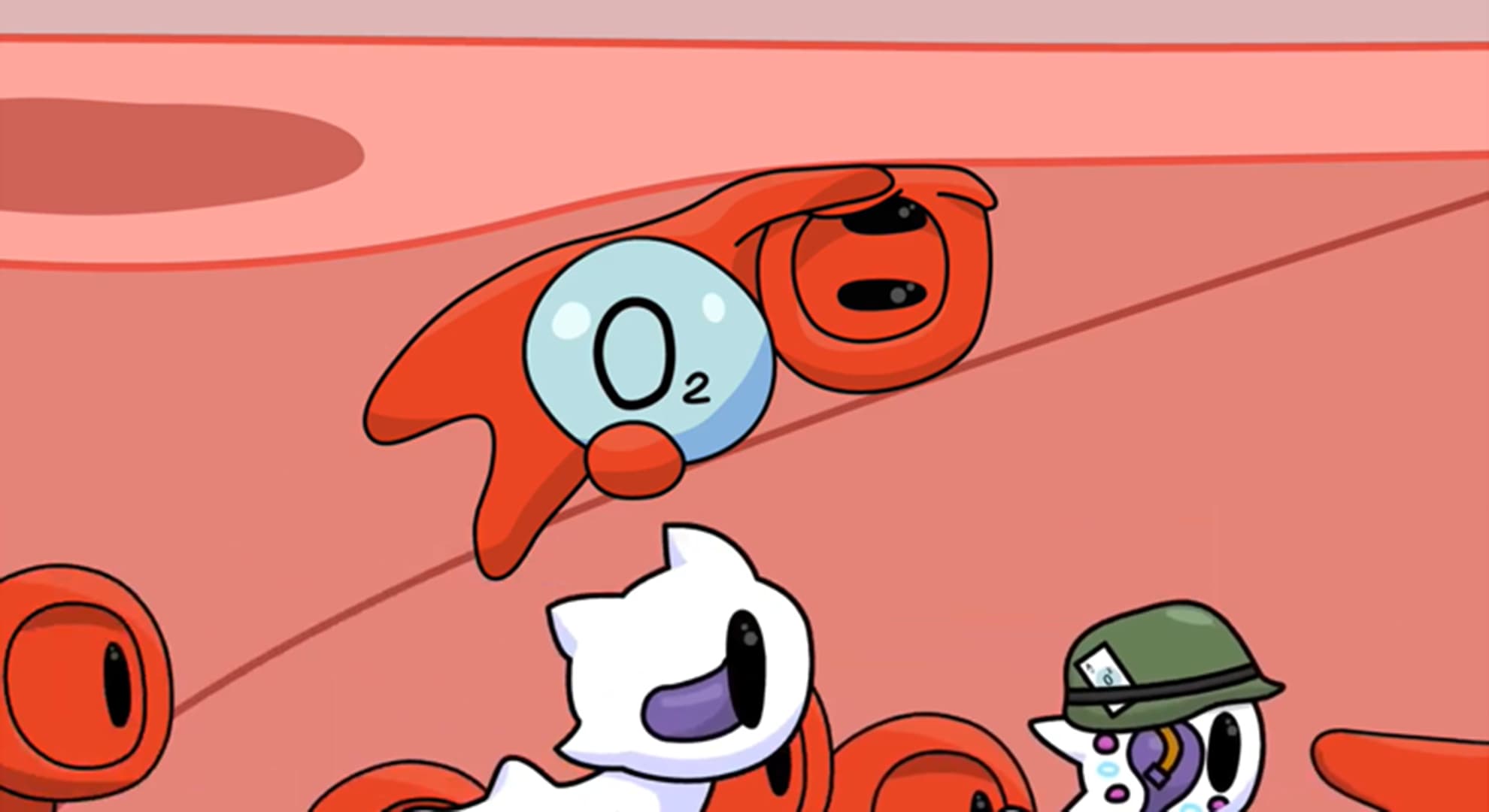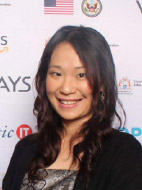A project using fun animations created by and made inclusive for people with neurodiversity and disabilities has won an $18,000 Inspiring Australia National Science Week Grant to help people with autism engage with science, technology and art.
A collaboration between Edith Cowan University (ECU) academic Dr Rina Fu (or 'Dr Rina', as she’s affectionately known by many), animation studio Red Bird Creative and disability services provider 4lifeskills, the MicroToons project uses dialogue-free animated short stories to explain various aspects of biology, featuring characters such as blood cells and microbes.
It's the project's second federal National Science Week grant, with the first being used to create the multi-award-winning MicroToons: Pimple in 2021.
It also caught the attention of Federal Minister for Early Education and Minister for Youth Dr Anne Aly, who requested a meeting with Dr Rina to discuss the project in depth.
 Dr Rina Fu and Dr Anne Aly.
Dr Rina Fu and Dr Anne Aly.
Autistic and neurodiverse artists are involved throughout the creative process, from storyboarding, to the evolution of characters from pencil sketches to computer graphics and moving animations.
Dr Rina is a lecturer and unit co-ordinator of Applied Microbiology and Introduction to Haematology at ECU's School of Medical and Health Sciences.
Dr Rina, who has a brother with autism, said the aim for MicroToons was to show science, technology and art in a new light.
"People with autism can struggle to engage with science, technology, and art; but when they manage to, it can empower them," Dr Fu said.
"For a lot of neurodiverse people, the stimulus which makes something enjoyable for the wider population can actually be stressful, overstimulating and a trigger point for anxiety and behavioural changes.
"So, for MicroToons, we were careful with our colour scheme so it's not fluoro, bright yellow on the screen, which research has shown can prove challenging for people with autism.
"There's also no dialogue to make it accessible without the language barrier and it's easily translatable to other languages.
"Using cinematic sound effects and simple labels makes the complexity easily understandable for a wide audience. So, whatever your background, you’ll take something away from the MicroToons story."
The new grant will go towards the creation of a new story, MicroToons: Scab, which will be launched on August 25 at an event including hands-on science activities which are inclusive of people with disabilities.
A mission of inclusion
Inspiring the next generation of scientists is important to Dr Rina – who regularly conducts school visits, stage shows, community outreach programs and has written and illustrated multiple science picture story books including 'My Mad Scientist Mummy' and its upcoming sequel, 'My Mummy's Pet Parasites'.
"I've always loved the workings of the human body, even at a younger age – it really captured my imagination,' Dr Rina said.
"But I've also always had an artistic streak, and the more I learned about science the more I had these little story ideas floating around my head."
 The MicroToons team (L-R): Aaron Welch (Red Bird Creative, Studio Director), Dafa Khairunnisa (Lead Artist, on the laptop), Tyla Harle-Winston (Artist, storyboard), Joseph Gardam (Animator, Lead Storyboard Artist), Dr Rina Fu (Project Lead, Story Writer, Artistic Director), Kai Jones (Animator). Picture: Callum M. Pilkington.
The MicroToons team (L-R): Aaron Welch (Red Bird Creative, Studio Director), Dafa Khairunnisa (Lead Artist, on the laptop), Tyla Harle-Winston (Artist, storyboard), Joseph Gardam (Animator, Lead Storyboard Artist), Dr Rina Fu (Project Lead, Story Writer, Artistic Director), Kai Jones (Animator). Picture: Callum M. Pilkington.
MicroToons is a project close to Dr Rina's heart and she has extensive experience with the barriers neurodiverse people can face in engaging with art, technology and science.
"As a sister and carer of my brother with nonverbal autism, growing up he's never done science in his schools because it's understandably never a priority: the focus is usually on social skills and self-care skills," she said.
Her work in schools has emphasised the impact inclusive messaging can have.
"As an invited speaker for TechTrails, I shared about my journey from a girl to a scientist and showcased MicroToons in a mainstream school," she said.
"I mentioned how the drawings were done by a girl with autism; there was one girl in year 9, she came up and said, 'I have autism and I've never thought that I could do STEM'.
"So the dream really is to create a MicroToons TV series, and I'd also love to do a Mr Men style book series about the Staph Gang or Perla the Platelet to promote literacy and a love of books — I just need to find an interested publisher!
"Because the experiences I've had when showing it to people proves it can be really meaningful and empower young students and upcoming artists and scientists."

 MicroToons aims to bring the worlds of science, art and technology to people with autism and neurodiversity.
MicroToons aims to bring the worlds of science, art and technology to people with autism and neurodiversity.



